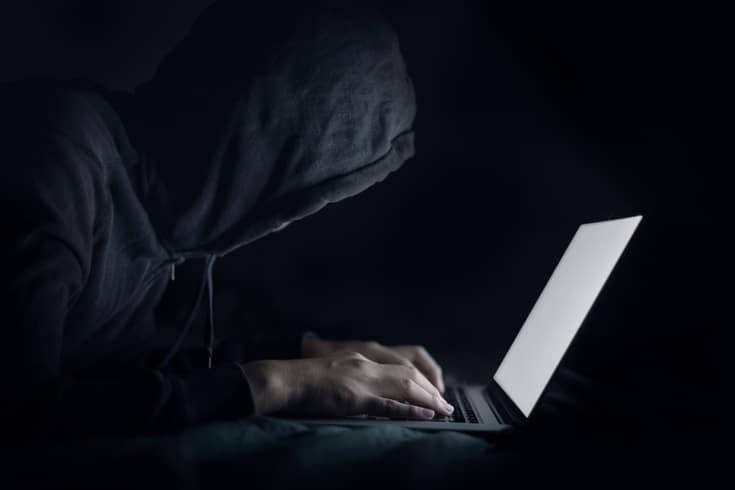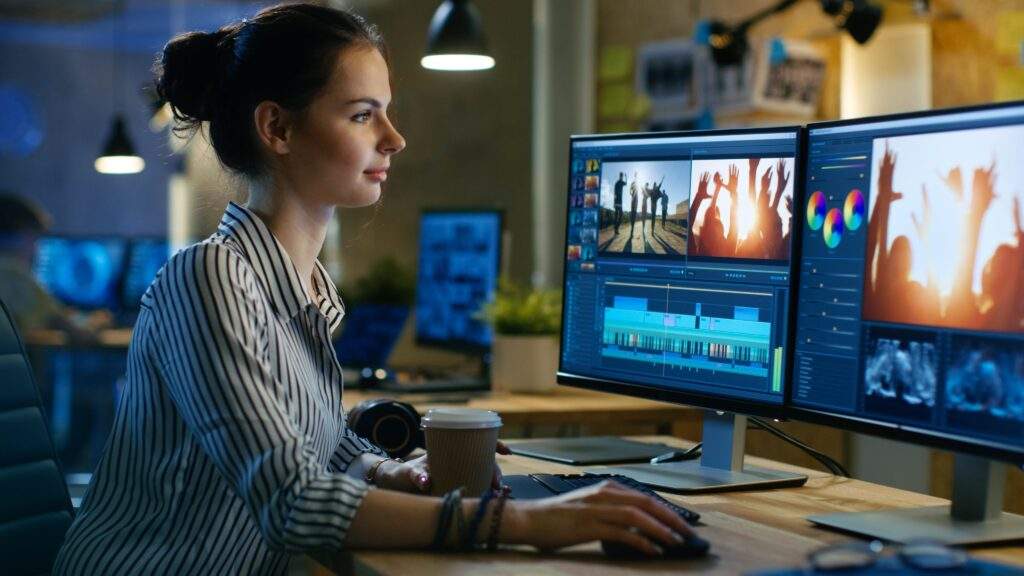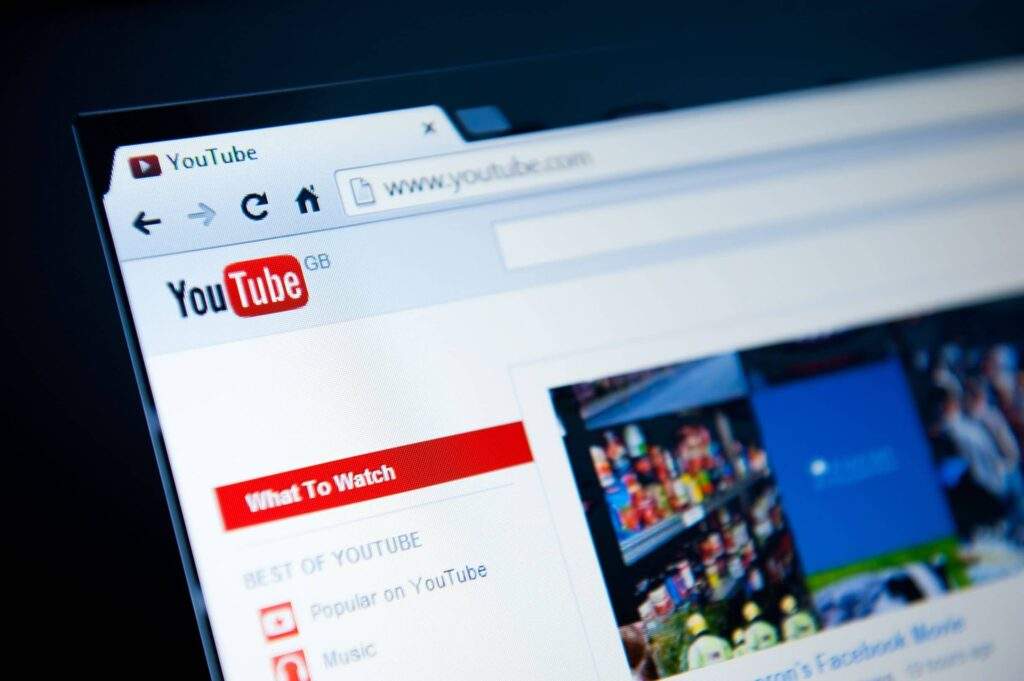When is it permissible to quote a video? Explaining the requirements under the Japanese Copyright Law and court precedents

Every day, a multitude of videos are posted on video platforms like YouTube, attracting the attention of many. In recent years, the use of other people’s videos across various media has increased, with diverse purposes and methods.
However, many videos are protected by copyright law as “works of authorship,” and misuse in terms of purpose or method can result in copyright infringement.
Therefore, it is extremely important to understand the correct ways to use these materials without infringing on copyright.
In this article, we will explain the requirements and case law under copyright law for instances where video quoting is permitted.
What is “Quotation” in the Japanese Copyright Law?
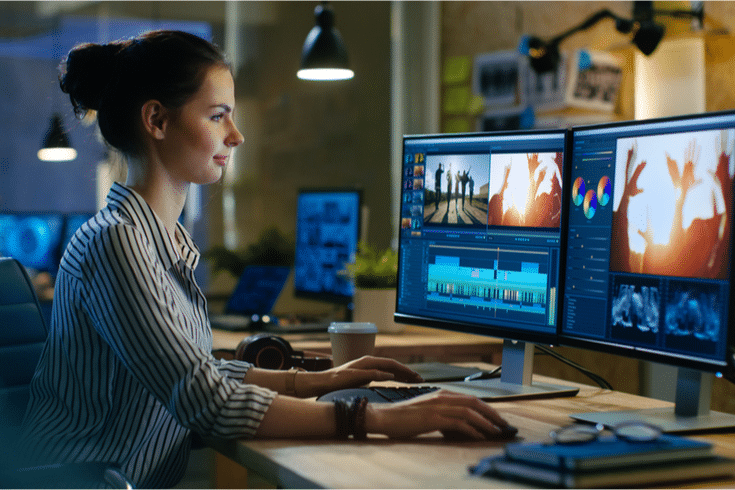
Basic Concept of the Japanese Copyright Law
The Japanese Copyright Law protects the rights and interests of authors by granting them exclusive rights to certain uses of their works.
What is generally referred to as “copyright” actually consists of two distinct rights: “Author’s Property Rights” and “Author’s Moral Rights”. The former protects economic interests (such as the right to profit from a work), while the latter protects personal interests (such as the author’s reputation and personal preferences).
The Japanese Copyright Law stipulates that if anyone other than the copyright holder performs certain actions protected under copyright or author’s moral rights without the copyright holder’s permission, they are subject to criminal penalties for copyright infringement or violation of author’s moral rights.
| Copyright | Author’s Moral Rights |
|---|---|
| Right of Reproduction Right of Performance Right of Public Transmission Right of Recitation Right of Exhibition Right of Distribution Right of Transfer Right of Rental Right of Adaptation | Right of Disclosure Right of Attribution Right of Integrity |
For example, if you download a video and upload it directly to a blog post, it infringes on the right of reproduction and the right of public transmission. If you edit or modify the video, it also infringes on the right of integrity.
Related Article: Explaining the copyright considerations of popular clipped videos [ja]
Related Article: What are the legal measures when ‘fast movies’ infringing copyright are posted on YouTube? [ja]
However, the Japanese Copyright Law aims to “contribute to the development of culture”, and in certain cases, copyright is limited and exceptions are made to allow the use of copyrighted works without the copyright holder’s permission (legally, this is referred to as “limitation of rights”).
One of the limitations of rights that becomes particularly problematic when using someone else’s video is “quotation” (Article 32 of the Japanese Copyright Law).
In the following, we will explain the significance of “quotation” and the requirements for it to be legal.
The Significance of “Quotation”
Firstly, the Supreme Court of Japan defines the significance of “quotation” as follows:
“Article 30, Paragraph 1, Item 2 (Note: Old Copyright Law, now Article 32) allows the free quotation of parts of another person’s work that has already been published within a legitimate range in one’s own work. The term ‘quotation’ here should be understood as the act of incorporating parts of another person’s work into one’s own work for the purpose of introduction, reference, critique, or other purposes.”
Supreme Court Decision, March 28, 1980 (Showa 55) (Montage Photo Case)
In other words, “quotation” refers to any act of using all or part of someone else’s work within one’s own work, which is, in principle, an act of copyright infringement.
However, if the following requirements are met, it does not constitute copyright infringement.
Requirements for “Quotation” to be Legal
- It must be “in accordance with fair practice”
- It must be “within a legitimate range” for the purpose of quotation
- The work being quoted must be a “published work”
The Work Being Quoted Must Be a “Published Work”
Under the Japanese Copyright Law, “publication” refers to a work being issued or presented to the public in a certain way by the copyright holder or someone who has obtained permission from the copyright holder.
Therefore, a video that has been made public against the will of the copyright holder does not qualify as a “published work”, and quoting such a video constitutes copyright infringement as a rule.
It Must Be “In Accordance with Fair Practice”
If there is an established practice, the quotation must follow it. For example, on YouTube, embedding links to videos by following the prescribed procedure is allowed under the terms of service, but quoting by any other method may not meet this requirement.
Note that under the Japanese Copyright Law, there is an obligation to clearly indicate the source (the site where the work is published, the name of the author, etc.) when quoting. However, unless there is an established practice of indicating the source, as mentioned above, failing to indicate the source does not negate this requirement.
However, there are separate criminal penalties for failing to indicate the source (Article 122), so it is safer to always indicate the source.
It Must Be “Within a Legitimate Range” for the Purpose of Quotation
Whether or not it can be said to be “within a legitimate range” generally requires meeting the following two requirements (the Supreme Court also made its judgment based on these two requirements).
- It must be clearly distinguishable between the quoting party and the quoted party (Clear Distinction)
- The quoting party must be the main party and the quoted party must be the subordinate party (Subordination)
In recent years, there is a strong view that the purpose and method of use, the nature of the work being used, and the presence and degree of impact on the copyright holder should be comprehensively considered. However, Clear Distinction and Subordination remain important factors in the judgment.
Court Cases Regarding Video Quotation

Let’s take a look at what points were disputed and how they were judged in actual court cases.
Court Cases Regarding Video Quotation for Criticism Purposes
Case Overview
The plaintiff is a corporation engaged in the production and sale of adult videos, and was distributing a video (with a total playback time of 195 minutes) under the plaintiff’s name for a fee on the Internet.
However, an unidentified person (hereinafter referred to as “the sender”) copied a part of the plaintiff’s video and created a video of about 10 minutes (hereinafter referred to as “the sender’s video”), which was uploaded to FC2 Video (hereinafter referred to as “the posting act”).
As a result, the plaintiff claimed that their right of public transmission (Article 23, Paragraph 1 of the Japanese Copyright Law) was infringed and requested the defendant, who is an intermediary provider, to disclose the sender’s information.
Dispute: Is the Posting Act a Legal “Quotation”?
(Defendant’s Argument)
The defendant argued that the posting act was a legal quotation based on Article 32, Paragraph 1 of the Japanese Copyright Law.
In other words, the purpose of the posting act was to criticize and inform general Internet users that the plaintiff was infringing on the copyright of a third party, and the plaintiff’s video was used only within the necessary range for the above purpose.
Moreover, the sender’s video was used only about 3% of the entire plaintiff’s video, there was no negative impact on the plaintiff’s economic benefits, and the source of the plaintiff’s video was clearly stated. Therefore, the defendant argued that the posting act was a legal quotation in accordance with fair practices.
(Plaintiff’s Argument)
The plaintiff denied the purpose of the posting act claimed by the defendant.
In other words, if the purpose was to criticize, it would have been sufficient to quote only the part of the sender’s video where the plaintiff was infringing on someone else’s copyright, and there was no need to use the part that had nothing to do with the infringement of someone else’s copyright. Furthermore, the plaintiff argued that there were other easy means, such as contacting the plaintiff, besides posting a video as in this case.
The plaintiff continued to argue as follows:
First of all, the sender’s video is nothing more than an edited version of the plaintiff’s video, and it cannot be considered a “quotation”. It is clear that the sender’s video does not have a clear master-servant relationship with the plaintiff’s video, which is a “quoted work”.
Furthermore, since the sender’s video reduces the demand for paid viewing of the plaintiff’s video, the posting act cannot be considered to have been carried out within a legitimate range in accordance with fair practices, and there is no room for it to be legally quoted.
Court’s Judgment
The court acknowledged that the plaintiff’s right of public transmission was infringed by the posting act, and examined whether the criticism purpose claimed by the defendant could be considered as “within a legitimate range” (Article 32, Paragraph 1 of the Japanese Copyright Law) in terms of legality. The court made the following judgment, rejecting the defendant’s argument:
It is sufficient to use the part of the plaintiff’s video where the music is used or a part of it to indicate the fact that the music is used in the plaintiff’s video. Even in light of the content of the beginning of the video, there is no need to use the beginning of the video to indicate the fact that the music is used in the plaintiff’s video, and it cannot be recognized that the beginning of the video is necessary to understand the background of the music part in relation to the indication of the above fact. Therefore, even if the sender is recognized to have the criticism purpose claimed by the defendant, there is no room to say that the use of the plaintiff’s video, including the beginning of the video, in the sender’s video is “within a legitimate range” in relation to the purpose.
Tokyo District Court, July 20, 2017 (Heisei 29) Judgment
In other words, the court did not recognize the posting act as a legal quotation, stating that even considering the criticism purpose claimed by the defendant, the use of the sender’s video cannot be said to be the minimum necessary use and does not conform to the “within a legitimate range” for the purpose of quotation.
The court then ordered the defendant, the intermediary provider, to disclose the sender’s information.
As a result, the plaintiff can now claim damages against the sender.
Related Article: Is it possible to identify an individual by disclosing the IP address on FC2 Blog? [ja]
Court Cases Regarding Video Quotation by Embedding Links
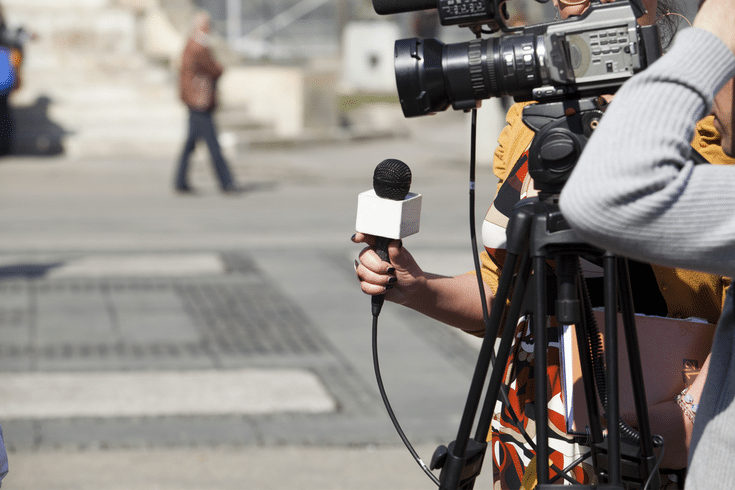
Is it legal to “quote” by simply pasting the URL of someone else’s video (for example, quoting a video by embedding it) instead of editing or using it?
Here, we introduce a court case (Osaka District Court, June 20, 2013 (Heisei 25)) where the legality of quoting a video by embedding it was disputed.
In a case where the defendant posted a link without permission to a video (hereinafter referred to as “the video”) for which the plaintiff is the author and which was illegally uploaded to Nico Nico Video on the site “Rocket News 24” (hereinafter referred to as “the site”) operated by the defendant, the court indicated that the above act by the defendant cannot be recognized as an infringement of the right of public transmission.
The reasons are as follows:
- When the play button of the video posted on the site is pressed, the video is transmitted directly from the Nico Nico Video server to the viewer without going through the site’s server, so it does not fall under “making transmission possible” or “instructing public transmission”.
- It was not clear from the content or appearance of the video that it had been illegally uploaded, and the defendant immediately removed the link when they received a protest from the plaintiff, so it was not aiding a third party’s copyright infringement.
In other words, in this case, it was judged that there was no illegal act of copyright infringement by the defendant, without even having to determine whether it falls under the “quotation” that is exceptionally legal.
Related Article: Is it OK to link to someone else’s homepage without permission? Explaining the copyright of links [ja]
Although it was not recognized in this case, even if the quotation of a video by embedding it is not considered to infringe the right of public transmission, it is necessary to be careful about the possibility of infringing the author’s moral rights (right of publication and right of name indication).
Points to Note When Quoting YouTube Videos

YouTube, in its terms of use, requires those who upload videos to grant a free license to use the videos to other users of YouTube.
Therefore, as long as you use YouTube in the prescribed manner, you are considered to have obtained the permission of the copyright holder who uploaded the video, and it does not constitute an infringement of copyright (and author’s moral rights) in the first place.
For YouTube’s prescribed method of quoting, please refer to the following site.
Related site: Embedding Videos and Playlists [ja]
When Quoting YouTube Videos Containing Music Works Managed by JASRAC
If a YouTube video contains music-related works managed by copyright management organizations such as the Japanese Society for Rights of Authors, Composers and Publishers (JASRAC), you must obtain separate permission from JASRAC under certain conditions.
Whether or not the work is managed by JASRAC can be confirmed by searching the “J-WID” work search database. Please refer to the following site.
Related site: JASRAC Works Information Database [ja]
For cases where individual permission is required and how to obtain permission, please refer to the explanation on the following JASRAC site.
Related site: Music Use in Video Posting (Sharing) Services [ja]
Legal Effect of Prohibiting Quotation (Unauthorized Reproduction)

When a video that has been quoted includes a statement prohibiting unauthorized reproduction, does it cease to be recognized as a “quotation” under Article 32 of the Japanese Copyright Law?
To answer this question, the statement prohibiting unauthorized reproduction has no legal significance. Even if such a unilateral declaration is present, it is legal as long as it meets the requirements for a “quotation” under the Japanese Copyright Law.
However, determining whether the requirements for a “quotation” are met can be difficult, so please consult a lawyer whenever possible.
Conclusion: If you’re struggling with online copyright issues, consult a lawyer
The reason “quotation” is permitted is to align with the purpose of the copyright system, which aims to contribute to the development of culture by fairly and smoothly utilizing works such as cultural products while protecting them.
As mentioned in the previous examples, simply embedding a video link on your own site or SNS would likely pose a relatively low legal risk.
However, if you are re-posting or editing a video, there is a possibility of infringing on copyright. Therefore, it is necessary to individually consider whether there are any limitations on copyright rights such as “quotation”.
In addition to video quotations, we have detailed explanations about quotations of documents and images in the following article.
Related article: Examples of ‘Copyright Law’ where quotation is considered NG (Text and Image Edition) [ja]
The conditions for quotation are strictly defined, and it is often difficult to determine whether or not it constitutes copyright infringement. Please consult with an experienced lawyer.
Introduction to Our Firm’s Measures
Monolith Law Office is a legal office with high expertise in both IT, particularly the internet, and law. In recent years, intellectual property rights surrounding copyrights have been attracting attention, and the need for legal checks is increasingly growing. Our firm provides solutions related to intellectual property. Details are described in the article below.
Areas of practice at Monolith Law Office: IT and Intellectual Property Law for Various Companies [ja]
Category: Internet



